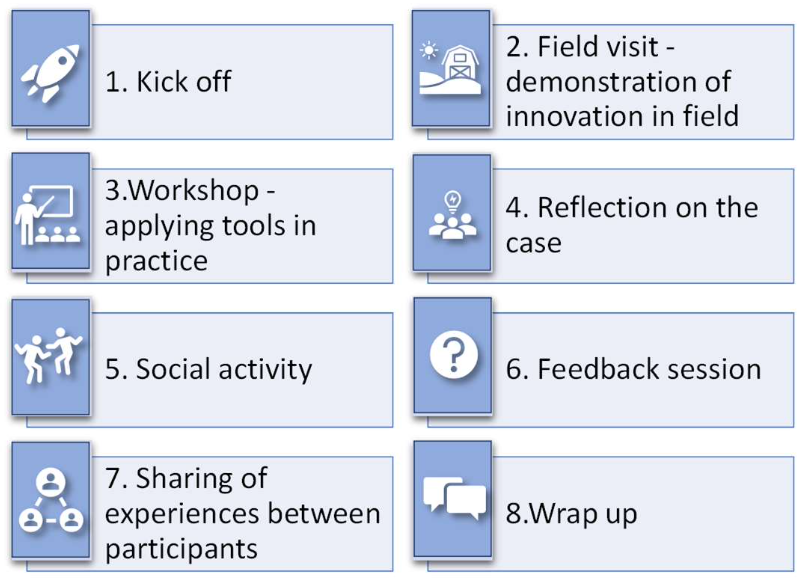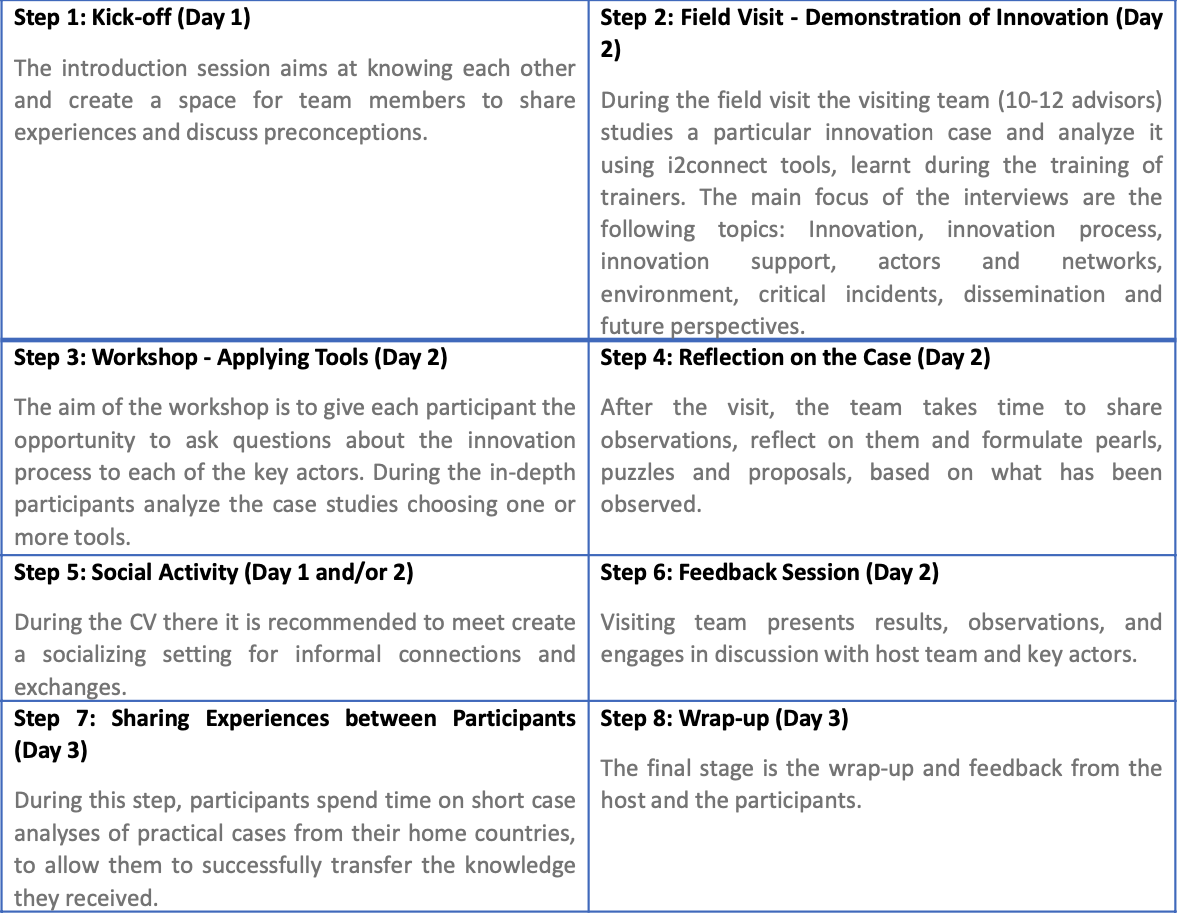2023
interactive innovation
operational groups
peer-to-peer learning
advisor's training

All advisors must be integrated within AKIS in an inclusive way, to be able to cover the economic, environmental and social dimensions and provide up-to-date technological and scientific information developed by R&I (art. 15 Reg. EU 2021/2115). To reach this goal, Managing Authorities had to define appropriate methods and approaches to better support advisors and innovation support services providers in their AKIS Strategies. Especially for innovation support services providers, in fact, there is a need for acquiring a set of capacities and skills that can be more effective if accompanied by experiential learning and exchanges. This kind of interaction seems to be much more productive in terms of learning than attending a seminar or a training course where lecturers try to transfer their wisdom.
Within the i2connect project a collaborative way of training for innovation support services providers has been realized through the organization of Cross Visits (CVs). The CVs consists of 2-3 days visit in which a group of advisors from different parts of Europe and with different backgrounds visit an interesting interactive innovation case with the aim to learn from how this has been developed and to assess each other contexts, practices and motivations. Visiting group consists of advisors, trained by i2connect training of trainers’ courses (see 4.5 AKIS-in-practice!). The training course was focused on providing a set of analytical tools (e.g. the spiral of innovation; the triangle of co-creation; the circle of coherence; the network analysis) to help advisors, or whoever is involved in innovation processes, to recognize patterns that are behind these complex systems, to understand their logic, and to see options to act effectively in the situation.
The CVs approach promotes the exchange of experiences through peer-to-peer learning among trainees from diverse backgrounds. The primary objective is to comprehend the background of the innovation process and the role advisors play in it, with the overarching aim of transferring this knowledge to their professional settings and beyond. Essentially, CVs serve as a wellspring of inspiration, offering valuable insights, tools, and a shared language that prove beneficial when advisors resume their duties and confront challenges in the workplace.
At the moment, 42 courses of training of trainers have been carried on under the i2connect project, in 18 European countries (up-to-date at October 2023). Under ATTRACTISS (AcTivate and TRigger ACTors to deepen the function of Innovation Support Services) Horizon Europe project, more advisors will be trained and more European countries will be covered. This will allow to have a sufficient number of advisors trained to be involved in CVs. From a practical perspective, each i2connect CVs is based on the following 8 steps, which can be adapted to the context of the hosting country and innovation cases:

The cross visits can be funded under the CAP SPs 2023-2027, particularly, as part the vocational training aiming at enhancing competencies and create chance for knowledge exchanges between advisors and innovation support services providers (art. 78 Reg. EU 2021/2115).
To support this type of intervention it is necessary to carry out the following actions: